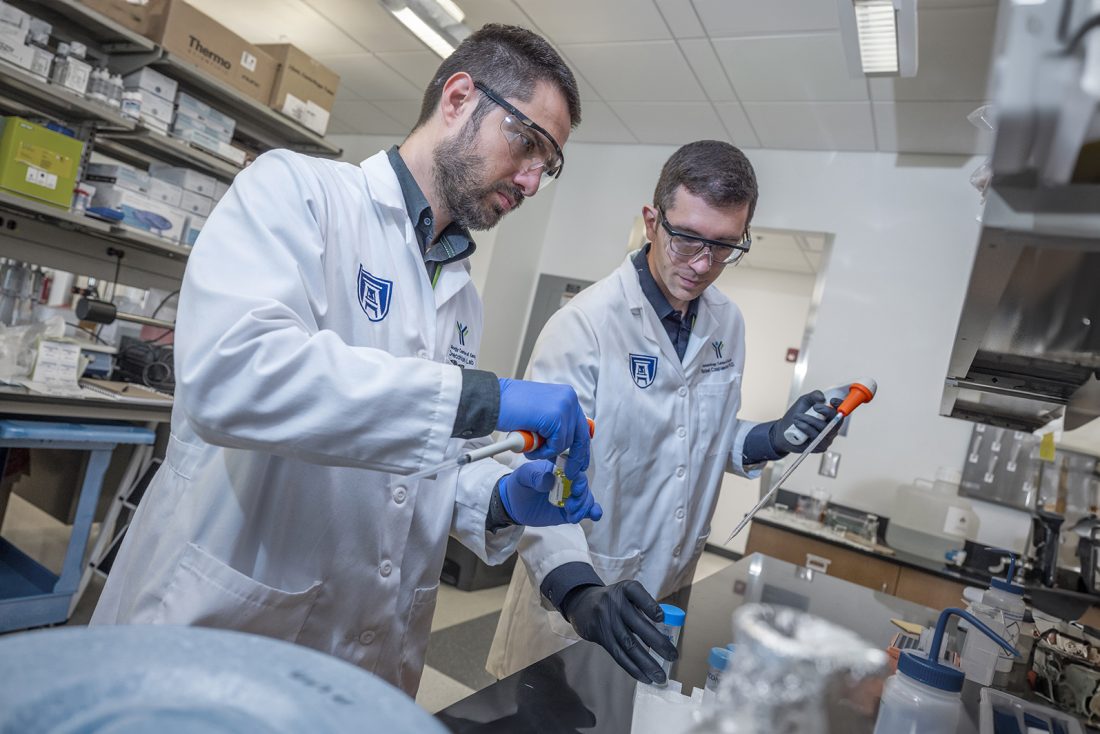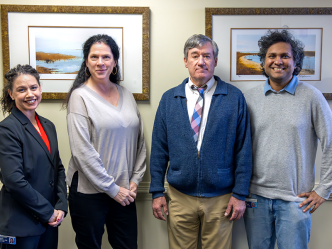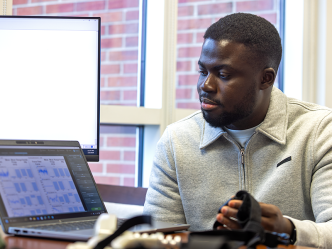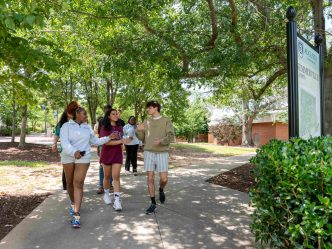A prestigious pilot grant from the National Institutes of Health will help an Augusta University researcher uncover the role of the lymphatic system in chronic inflammatory diseases.

Rafael Czepielewski, PhD, assistant professor at the Immunology Center of Georgia, has received the MIST Scholar Award in Mucosal Immunology from the National Institute of Allergy and Infectious Diseases, which is part of NIH.
This one-year, $125,000 grant will fund his innovative research on the interplay between the immune system and lymphatic vasculature in chronic conditions such as inflammatory bowel disease.
The Mucosal Immunology Studies team supports research that advances the understanding of mucosal immune defense mechanisms, explores novel hypotheses or addresses other questions in mucosal immunity that have the capacity to develop into long-term funded projects.
“This award is a significant milestone in my career and for the Immunology Center of Georgia,” Czepielewski said. “It allows us to explore uncharted territory in mucosal immunology and vascular biology, which could lead to a deeper understanding of how diseases like ulcerative colitis and Crohn’s disease emerge and progress.”
Despite advances in treating IBD, the underlying causes of the disease remain elusive. Current therapies often manage symptoms but fail to provide a cure or prevent relapses. Czepielewski’s research seeks to address this gap by focusing on the lymphatic system’s role in disease progression.
“We discovered that during chronic inflammation, the lymphatic vessels in the colon are altered, disrupting their ability to connect key components of the immune system,” he explained. “This disruption may be a fundamental reason why inflammation persists and why patients experience relapses.”
The project will also investigate a newly identified population of macrophages, immune cells that act as a secondary barrier in the intestine. These cells play a crucial role in immune surveillance, helping to distinguish between harmful pathogens and benign substances.
“We believe these macrophages are vital for maintaining intestinal health,” Czepielewski said. “If they’re lost during disease, it could exacerbate chronic inflammation.”
Czepielewski’s work builds on studies conducted during his postdoctoral training with renowned immunologist Gwendalyn Randolph, PhD, at Washington University Medical School in St. Louis, in conjunction with the University of Oxford. The MIST Scholar Award will provide critical preliminary data to support larger, long-term studies.
“This grant is not just about answering immediate questions,” he said. “It’s about laying the groundwork for transformative research that could lead to better therapies and improved patient outcomes.”
The research also has broader implications beyond IBD. A better understanding of mucosal immunity could lead to the development of more effective vaccines and immunotherapies. For example, insights into how the gastrointestinal immune system functions might pave the way for oral vaccines that are easier to administer and more accessible.

The MIST Scholar Award is highly competitive, with only five awards granted annually in recent years. Klaus Ley, MD, founding co-director of IMMCG, noted the significance of this achievement.
“This award recognizes Dr. Czepielewski’s exceptional potential as a scientist and highlights the caliber of research being conducted at the Immunology Center of Georgia,” Ley said. “His work addresses fundamental questions about the immune system that could have a profound impact on public health.”
IMMCG, part of the Medical College of Georgia at Augusta University, was established to tackle some of the most pressing challenges in immunology, including cancer, cardiovascular disease and chronic inflammation. Czepielewski’s research aligns with this mission, bringing fresh perspectives to the intersection of mucosal immunology and vascular biology.
“This grant is a testament to the collaborative and innovative environment at IMMCG,” Czepielewski said. “I’m excited to contribute to the center’s growing legacy and to push the boundaries of what we know about the immune system.”
Discoveries at Augusta University are changing and improving the lives of people in Georgia and beyond. Your partnership and support are invaluable as we work to expand our impact.
 Augusta University
Augusta University




